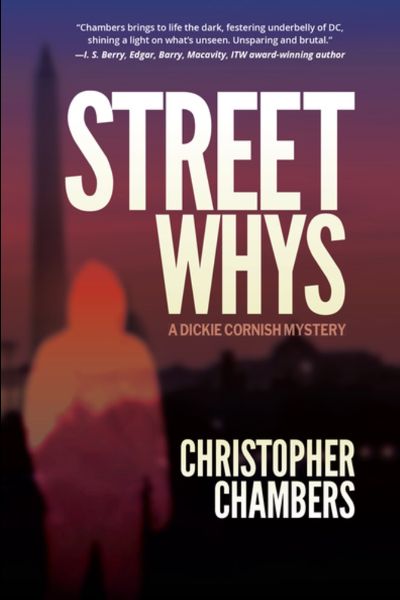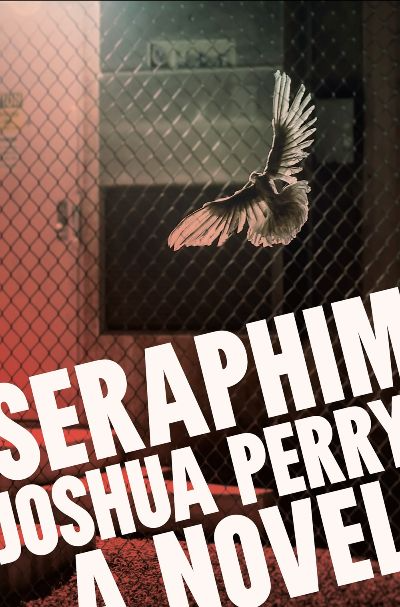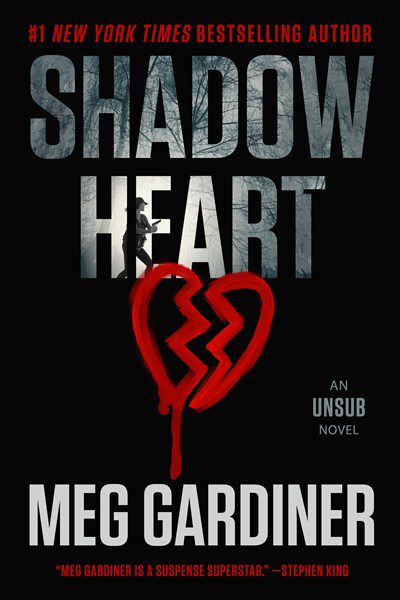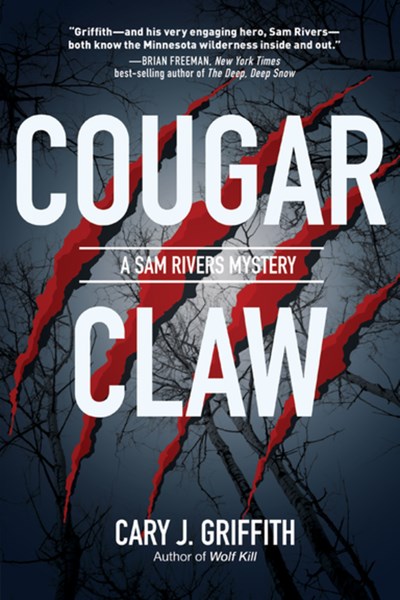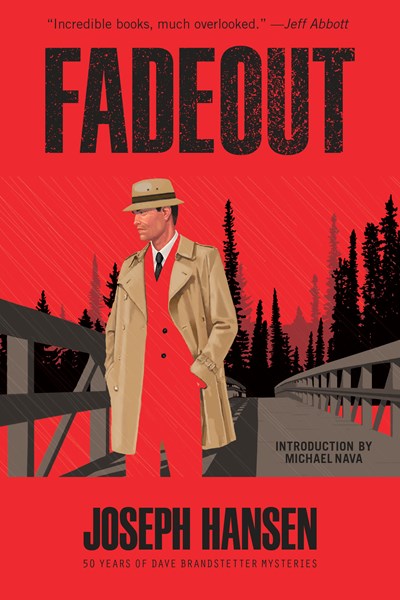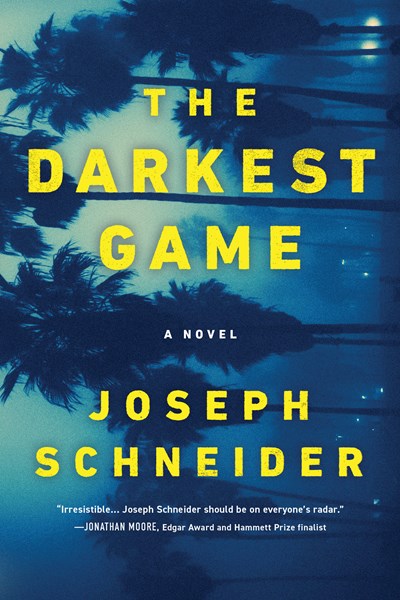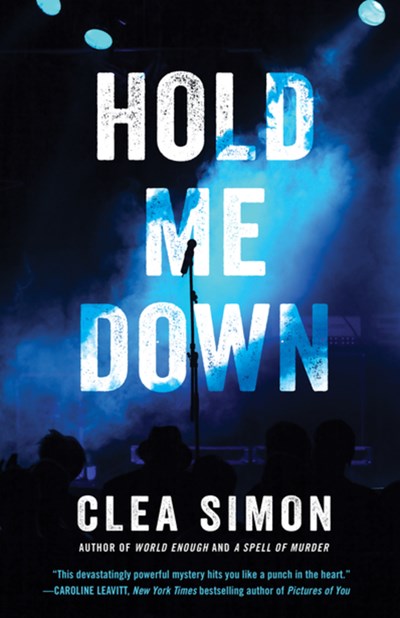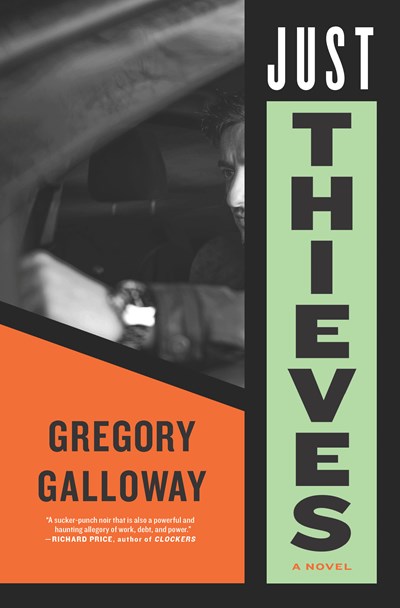After Scavenger and Standalone, Chambers has brought his DC PI Dickie Cornish back to have his smarts tested and his heart trampled on again. Dickie’s clean after “a mishap in college” (Howard University, no less) saw him living as an addict on the streets and in various flophouses. He’s the kind of guy who lets his cat eat mayo and crumbs off his plate, but can put a tough facade on when he has to. When a way-out-of-his-league former classmate, now Deputy Attorney General of the United States, asks him—with the threat of a murder charge from his past if he says no—to find out who’s supplying lethal drugs to the area, he’s back on the streets, tough attitude in place. Readers are in for a layered mystery here, with Dickie moving between tent cities and the Department of Justice to figure out what’s going on, and with figures from his past reappearing and adding to the puzzle and mayhem. Throughout, the Black PI’s failure to fit in his old haunts and new ones creates an atmospheric tension that’s imparted by Dickie’s inner monologue and realistic dialogue with characters of all kinds. Noir fans, look out.
Hard-Boiled
Every book has words, is comprised of words, but this book is about words. The ones that 16-year-old Robert Johnson used when his charter school teachers, who treat optimism as a kind of hygiene, told him he should confess to the murder of Lillie Scott, a hero of the rebuilding of New Orleans, who hired at her restaurant those down on their luck. The words the boy can’t or won’t say about what really happened, which barely matters anyway since the system will drag him in now or later, formed as it is of “strange empty words in the shape of language but without any meaning.” And the words that are unsaid as Lillie “[lies] down in the street so noiselessly, slow like a sheet in the breeze flutters to the ground.” Shoulder to the wheel of all this is Ben Alder, a former rabbinical student and son of a linguist, and his dude of dudes, Grand Old Dude of York, Mayor Van Dude of Dudetown, Boris Pasternak. These public defenders ask for every case involving a child, and Ben becomes Robert’s lawyer. All the boy wants is to talk to his dad. But Ben doesn’t tell him that he’s also representing the father, who, unknown to the boy, is in the same jail. Ben has “no questions that are small enough for the courtroom,” but still wrangles his fear and his clients through the morass to a satisfying outcome, one that will leave readers with large questions of their own, mainly about this country’s treatment of Black boys. Debut novelist Perry, a former New Orleans public defender, has wonderfully distilled a world of hurt onto the page.
Perhaps only in New Orleans can there be a gay novice nun who is also a novice private detective and who offers up prayers like, “Hail Mary, share with me your divine vision, because I can’t see a fucking thing.” The nun in question is Sister Holiday, who teaches in a private school, runs a support group for survivors of Catholic Church sexual abuse, and on the side partners with a former cop to run Redemption Detective Agency. When the two hit the banks of the Mississippi to meet a new client, Holiday finds herself wading into the water to catch a body before it floats away. It’s her parish priest, and that awful discovery isn’t the last. Returning to school, the nun finds that another priest is missing. He seemed a kind young man, not one of the priests that Holiday loathes for their fake piety and fondness for their parishioners’ money. While a storm rages, Holiday must face the contradictions that are her life and life in New Orleans as well as help her brother and others face their demons, all while trying desperately to solve the mystery of the missing priest. Douaihy’s first in the series, Scorched Grace, was a New York Times Book Review Editors’ Choice, among other accolades. Fans of that book, as well as all who love an irreverent and smart lead, will happily join Sister Holiday for her second outing.
Gardiner shakes up the serial-killer genre with her latest thriller. FBI profiler Caitlin Hendrix visits serial killer Efrem Judah Goode in prison. He shows her detailed drawings of the women he has killed, but none of them are the victims he’s incarcerated for killing. He claims innocence for those women’s murders but is not innocent of being a murderer. There is a copycat called the Broken Heart Killer, and somehow Goode and this UNSUB are connected. Caitlin dives into the case and will once again put her career and life on the line for justice, while bringing closure to the families of the women Goode killed. What she uncovers will surprise even the most jaded reader. Gardiner has a gift for tackling gruesome and uncomfortable topics and giving the prose a literary spin. While other authors might wallow in the ugly, Gardiner makes it beautiful. Fans of true crime and the television show Criminal Minds should make Gardiner mandatory reading.
Addy Zantz is like a cold-blooded animal, taking his emotions from his environment as some creatures take their body heat from the sun. He’s an Uber driver, working what he calls the River Styx, the loop from LAX to various hotels, all the while investigating the fully clothed-drowning death of Annie Linden, music legend and a customer who turned into a friend. Annie was a contemporary of Joni Mitchell, and seemed to resemble Mitchell in feeling shut off from the world, taking tentative steps into reality through music and trips in Addy’s car, when she sampled humanity in tiny sips. At first, Addy’s investigation seems borne of nothing else to do. But when a friend, an orthodox Jew who’s too much of a stoner to save himself from the accusation, is accused of the crime, with Addy as an accessory, the cabbie must hit the road hard to find out what really happened to Annie. As the best noirs do, The Last Songbird stays inside the mind of its investigator even while the case casts its glance from distant acquaintances to distant times and decisions. This one keeps returning to the same questions even as it explores the possibilities: who was Annie really? And if Addy finds that out, can he find himself? If you liked T. Jefferson Parker’s A Thousand Steps, try this.
This is one of those thrillers that opens with a full view of the crime—in this case, two men ambushing a Savage, Minnesota CEO and attacking him with real cougar claws and teeth. There was recently a sighting of one of the big cats in the area, so it’s easy for investigators to believe the businessman became a meal. The local sheriff who’s running for re-election has no objection to chalking the death up to wildlife rather than crime stats….but then Sam Rivers shows up to complicate his life. Sam, special agent for the U.S. Fish and Wildlife Service, doesn’t care for bureaucracy or the sheriff, and persists in finding out what’s behind this event that looks suspicious to his expert eye. Just what looks off to Sam will teach readers about things like the structure of all cats’ paws, which parts of a person a cougar would eat, what one of the creature’s teeth embedded in a person’s spine should look like, and other juicy tidbits. In the human world that Sam deals with somewhat reluctantly, things are more complicated, as his investigation is a tangled web of an about-to-be-very-rich widow, her nosy neighbor, a journalist who’s also Sam’s love interest, and always that blustery sheriff. Sam Rivers is akin to Emily Littlejohn’s character Gemma Monroe—a likable, steadfast investigator whose work takes readers into the outdoors and the crimes it hides. He’s a character worth getting to know.
First published 50 years ago, Fadeout introduced David Brandstetter, a ground-breaking detective—he works as an insurance claims investigator—who is openly and unapologetically gay. This was at a time, as Michael Nava reminds us in his introduction, when “49 out of 50 states criminalized gay sex between consenting adults and the American Psychiatric Association deemed homosexuality a mental disorder.” One of the great contributors to California noir, Hansen went on to redefine the private eye through 11 more Brandstetter novels (all being republished in print and as ebooks by Syndicate Books), stretching from 1965 and the rising counterculture to the late ‘80s and AIDS. Throughout, Brandstetter regularly touched on hypocrisy and homophobia, while managing to attract the largest readership queer crime fiction had ever received. Fadeout focuses on the disappearance of Fox Olson, a country singer and radio star whose car was driven off a bridge during a storm and the body never found. Brandstetter doesn’t buy it. In prose so lean and evocative you want to stop and read it aloud, we follow Brandstetter as he goes deep into Olson’s life as well as his own, each achingly sad in its own way.
One of the most fascinating detectives to have come along in years, Tully Jarsdel isn’t your typical cop. He abandoned a doctoral program to attend the police academy. He was raised by two dads, one of whom escaped Iran as a refugee. And he’s a brainiac—with so much trivial knowledge that his partner, detective Oscar Morales, calls him Rain Man. But he’s perfectly suited to investigate the death of Dean Burken, who was violently murdered in his own home. Burken, it turns out, was a registrar at The Huntington, a museum, library, and garden. Registrars can be powerful people, and Tully is quick to realize that Burken was abusing his position—in a big way. From deep inside The Huntington to Catalina Island, off the coast of Los Angeles, Tully and Jarsdel pursue a narrative of fraud, corruption, and greed. Fortunately, the detective work is offset with family issues, as one of Tully’s parents has a serious health crisis and the other struggles to deal with his past in the Iranian revolution. Throughout, Tully remains introspective, elusive, and unsettled—making the prospect of a fourth book all the more compelling.
Simon, prolific author of the Witch Cats of Cambridge series, here mines her past as a rock critic. The tale looks at former rockers visiting their own past when they reunite for a benefit after former bandmate Aimee dies. During the concert, Gal Raver, frontwoman of the band and of the book, sees a familiar face in the crowd. It’s TK, the band’s old roadie, who’s later found dead in an alleyway behind the club. Walter, Aimee’s husband, is charged with murdering TK and seems curiously apathetic when Gal tries to help him fight the accusation. Finding out what happened involves numerous murky flashbacks to Gal’s past as a messy, angry drug and alcohol addict, and her behavior and the battle for fleeting success give the book a feeling of darkness. Simon’s evocative writing puts readers inside sweaty clubs that stink of beer and vomit (so much vomit!), and reaches its first height when describing the moment the fledgling band finally gels onstage. The music fades in the last part of the novel, which explores hard truths and the differing ways they can be remembered, with Simon’s depiction of Gal’s slowly unfurling memories a second high point. Note that rape is described here in some detail. For readers who enjoy dark stories and fans of music-themed mysteries.
Frank’s day job is as a thief, but he believes himself a philosopher at heart, and uses his constant learning and contemplation to justify his ways. Ownership isn’t real anyway, he tells his partner, Rick, during their long stakeouts. There are hints that the two are a couple, but love or any kind of emotion seems beyond Rick, whose ennui and lack of agency sees him take on a life of crime because, whatever, it’s all the same. Mr. Froehmer, a crime boss who will remind readers of Breaking Bad’s Mr. Fring—aloof, sparing of details—assigns the partners seemingly meaningless things to steal, and they’re off on a trajectory that eventually sees Rick forced to take hold of the reins when his mentor can no longer make their decisions. Readers will love to hate Denise, Rick’s shifty ex, and will cheer Rick as an unlikely hero when he shakes off the blahs and takes charge of what matters. Fans of dialog-rich novels are the audience for this thoughtful noir from Galloway (Careful and Other Stories; The 39 Deaths of Adam Strand).
- 1
- 2

